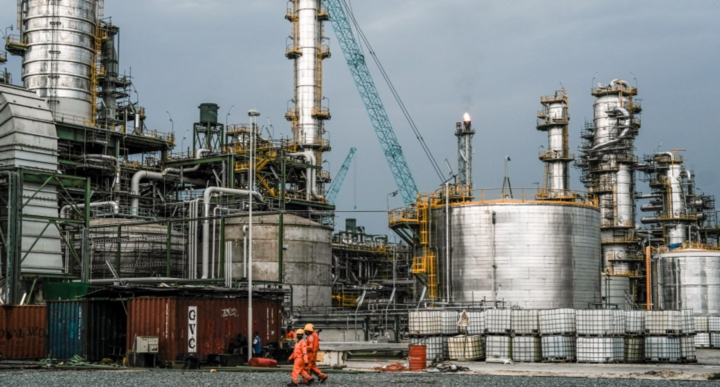Ekperikpe Ekpo, Nigeria’s Minister of State for Petroleum Resources (Gas), has underscored the significant role that the Petroleum Industry Act (PIA) plays in addressing the longstanding infrastructural challenges facing Nigeria’s gas sector.
According to Ekpo, the PIA is a transformative milestone that is already making strides in bridging the infrastructure deficit, fostering an environment conducive to investment, and driving innovation in the gas industry. He made these remarks during the Domestic Gas and Gas Infrastructure Summit (DGGIS) held in Abuja on October 24.
Ekpo emphasized that the implementation of the PIA has introduced strategic interventions like the Midstream and Downstream Gas Infrastructure Fund (MDGIF), which is instrumental in closing the infrastructure gap. This development is not merely about anticipating domestic growth but is also a significant step towards positioning Nigeria as a pivotal player in Africa’s gas market and on the global stage.

As the world increasingly prioritizes efforts to reduce carbon emissions, the Nigerian government, led by the Tinubu administration, recognizes the crucial role of natural gas in the country’s transition to cleaner energy. Ekpo asserted that natural gas is not just a temporary solution; it represents a long-term, sustainable option that aligns with global climate goals by curbing carbon emissions.
The government’s strategies and initiatives are squarely aimed at boosting domestic natural gas consumption and eradicating the wasteful practice of gas flaring. Notable programs such as Gas-to-Power, Gas-based industries initiatives, and the Nigerian Gas Flare Commercialization Programme (NGFCP) are clear indicators of the nation’s commitment to these objectives.
Ekpo further highlighted the broader vision of the Tinubu administration regarding natural gas in Nigeria. This vision extends beyond the mere development of pipelines and power generation. It seeks to establish a gas-based economy that benefits all citizens and ensures that every Nigerian is included in and benefits from this economic transformation.
To support the ambitious expansion projects in the gas sector, Ekpo revealed that the government is actively working on restructuring financing models. These models not only promise to boost the economy but also offer cleaner and more efficient energy solutions. Additionally, the government is exploring the potential of alternative energy sources, with methanol production emerging as a promising component of this endeavor.
The need for substantial infrastructure development in the gas sector is evident. Kelvin Emmanuel, a Non-Executive Director at OA Markets Nigeria, has previously drawn attention to the critical issue of inadequate infrastructure hindering gas deployment in the country. One of the primary challenges in the gas supply chain is the insufficient investment in expanding the gas pipeline network, which currently stands at 2,000 kilometers but needs to reach 7,000 kilometers to enhance efficient gas transportation and meet the energy demands of various regions.
The rising costs associated with Engineering, Procurement, and Construction (EPC) activities, which are vital for investment decisions, further exacerbate the situation. These high costs act as a deterrent to potential investors and stakeholders who might otherwise support gas supply projects. Importing the large steel pipes, ranging from 20 to 40 inches in diameter and required for high-pressure transmission pipelines, adds an additional layer of complexity and expense to the challenge.
In conclusion, Nigeria’s gas sector is at a transformative juncture, driven by the enactment of the Petroleum Industry Act. The government’s commitment to addressing infrastructural deficits, boosting domestic gas utilization, and transitioning to cleaner energy sources is evident. However, substantial investments and innovative financing models are required to propel the gas industry to new heights and unlock its full potential, ensuring that all Nigerians benefit from this economic transformation.
Support InfoStride News' Credible Journalism: Only credible journalism can guarantee a fair, accountable and transparent society, including democracy and government. It involves a lot of efforts and money. We need your support. Click here to Donate
